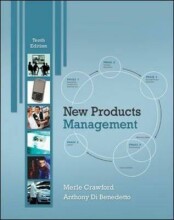Work-life balance/interaction - Work-family interaction - Ways of dealing with work and family demands
3 important questions on Work-life balance/interaction - Work-family interaction - Ways of dealing with work and family demands
Individual coping strategies:
- An individual’s cognitive and behavioural efforts to manage specific external and/or internal demands that are appraised as taxing or exceeding the resources of the person
- Active: problem-focused coping aiming to solve the stressful situation is beneficial in reducing both WFC and FWC
- Emotion-focused: emotional regulation behavior brings higher WFC and avoidance-focused coping brings higher WFC and FWC.
Work-family coping strategy:
Work-family policies and culture:
- Formal work-family policies: cover leave and flexibility arrangements, and their availability varies across welfare regimes
- Informal work-family culture: refers to shared assumptions, beliefs and values regarding the extent to which an organisation supports and values integration of work and family
- managerial support
- career consequences
- organizational time demands
The question on the page originate from the summary of the following study material:
- A unique study and practice tool
- Never study anything twice again
- Get the grades you hope for
- 100% sure, 100% understanding






























